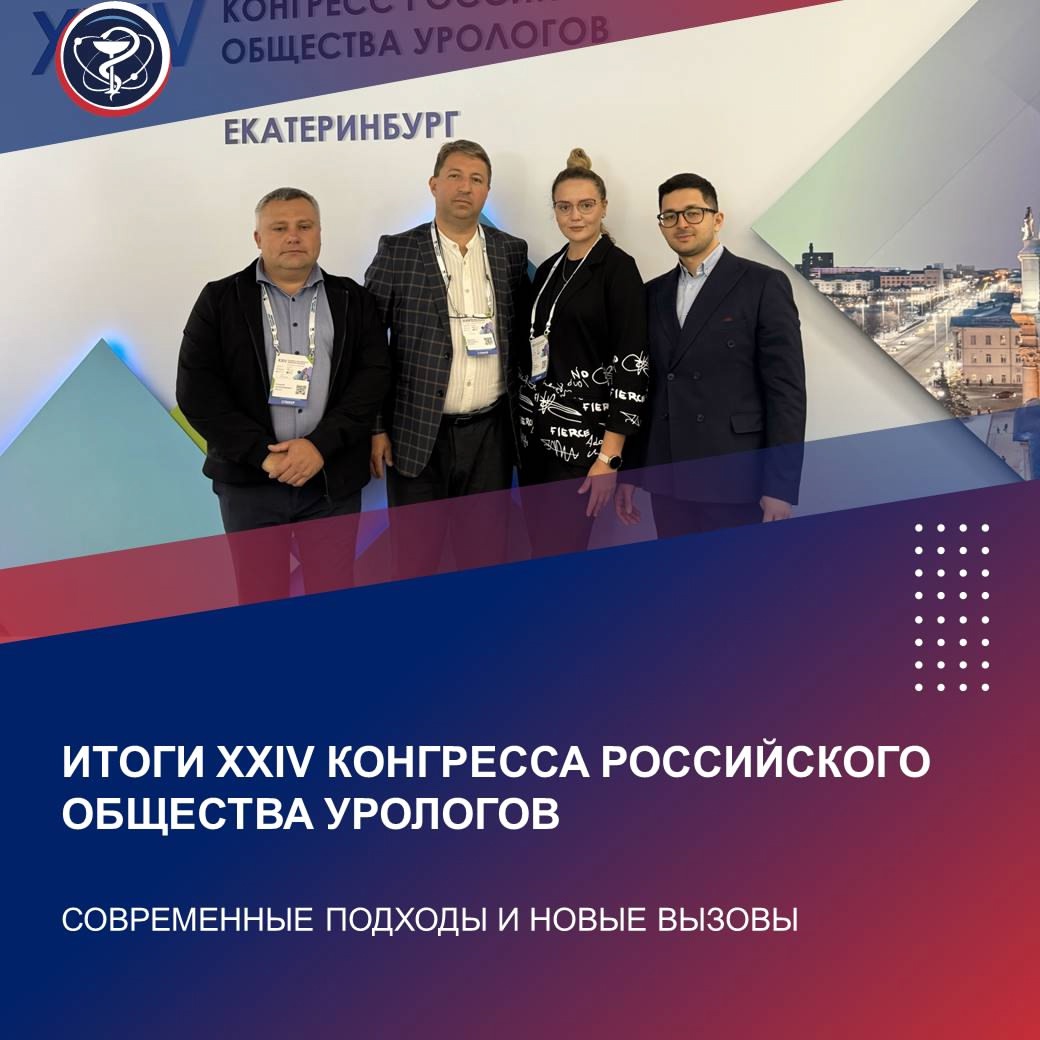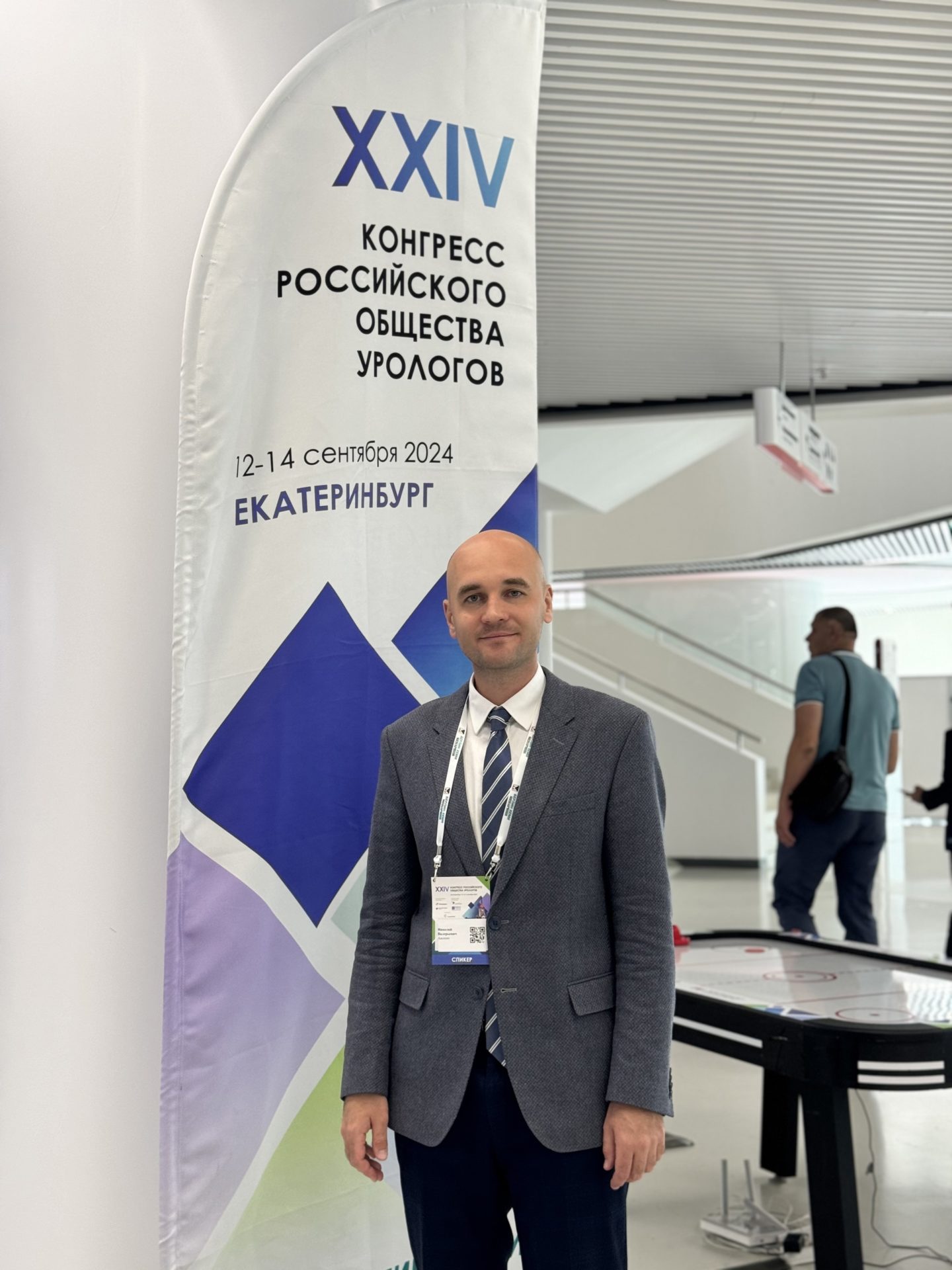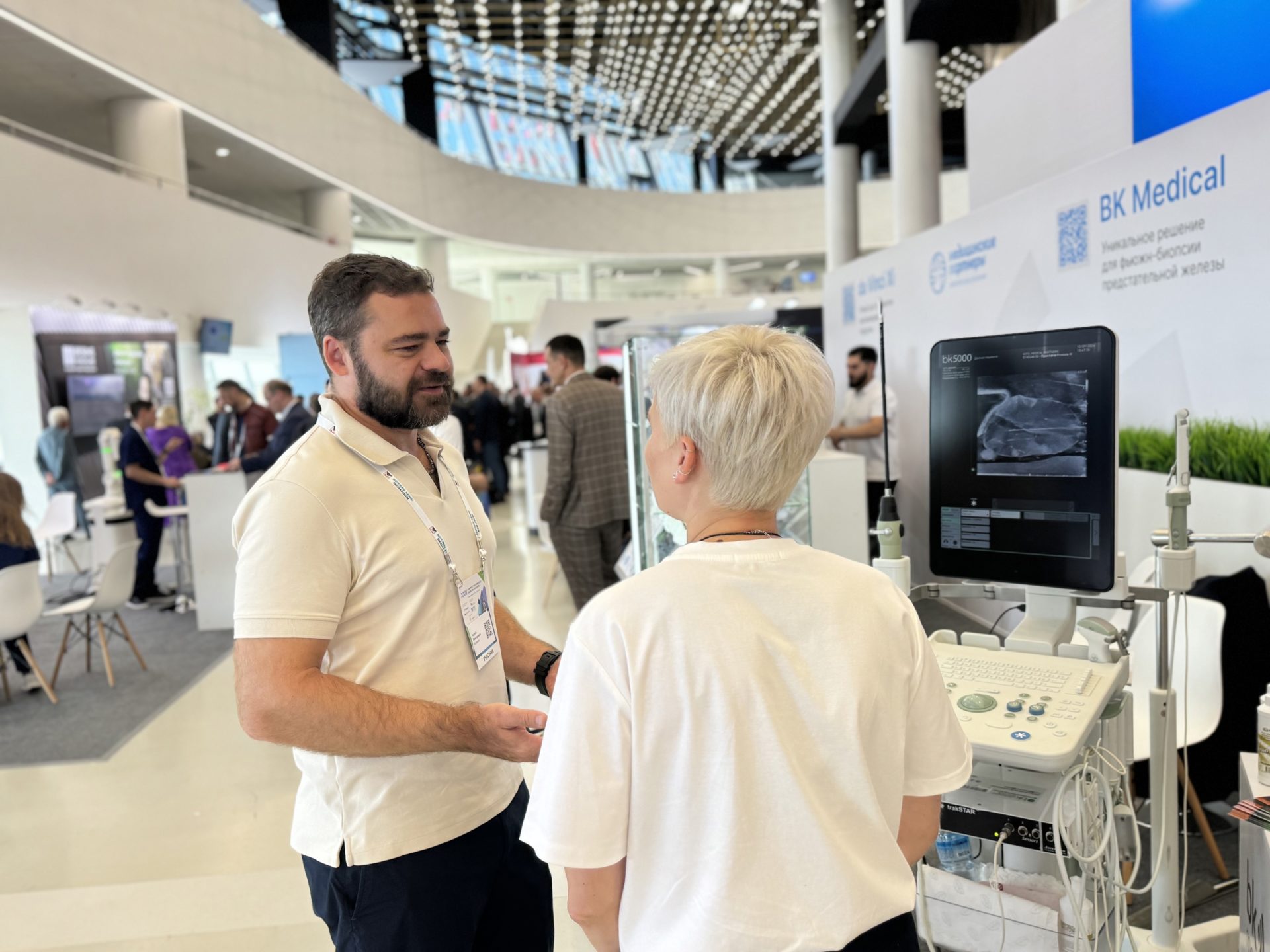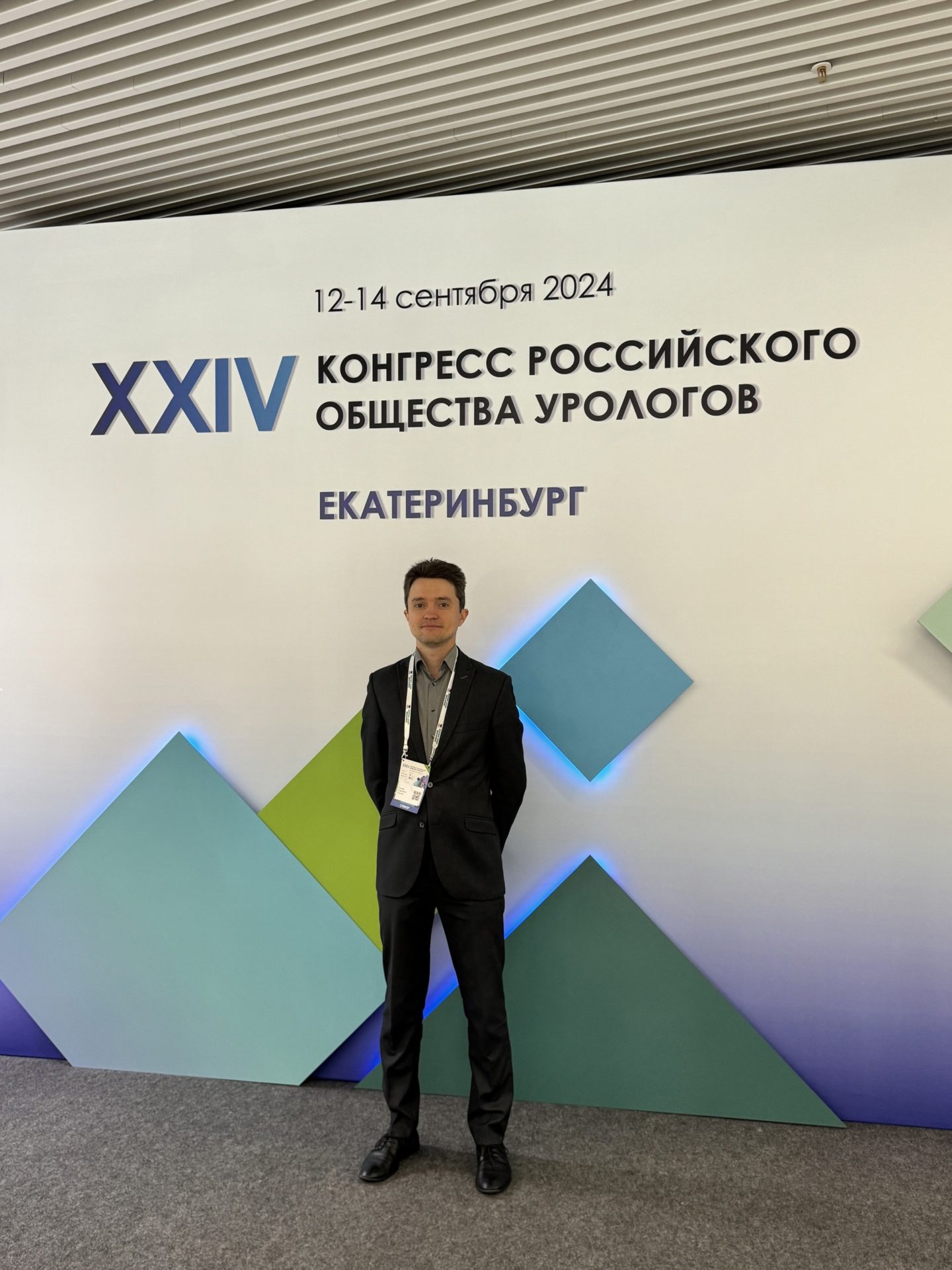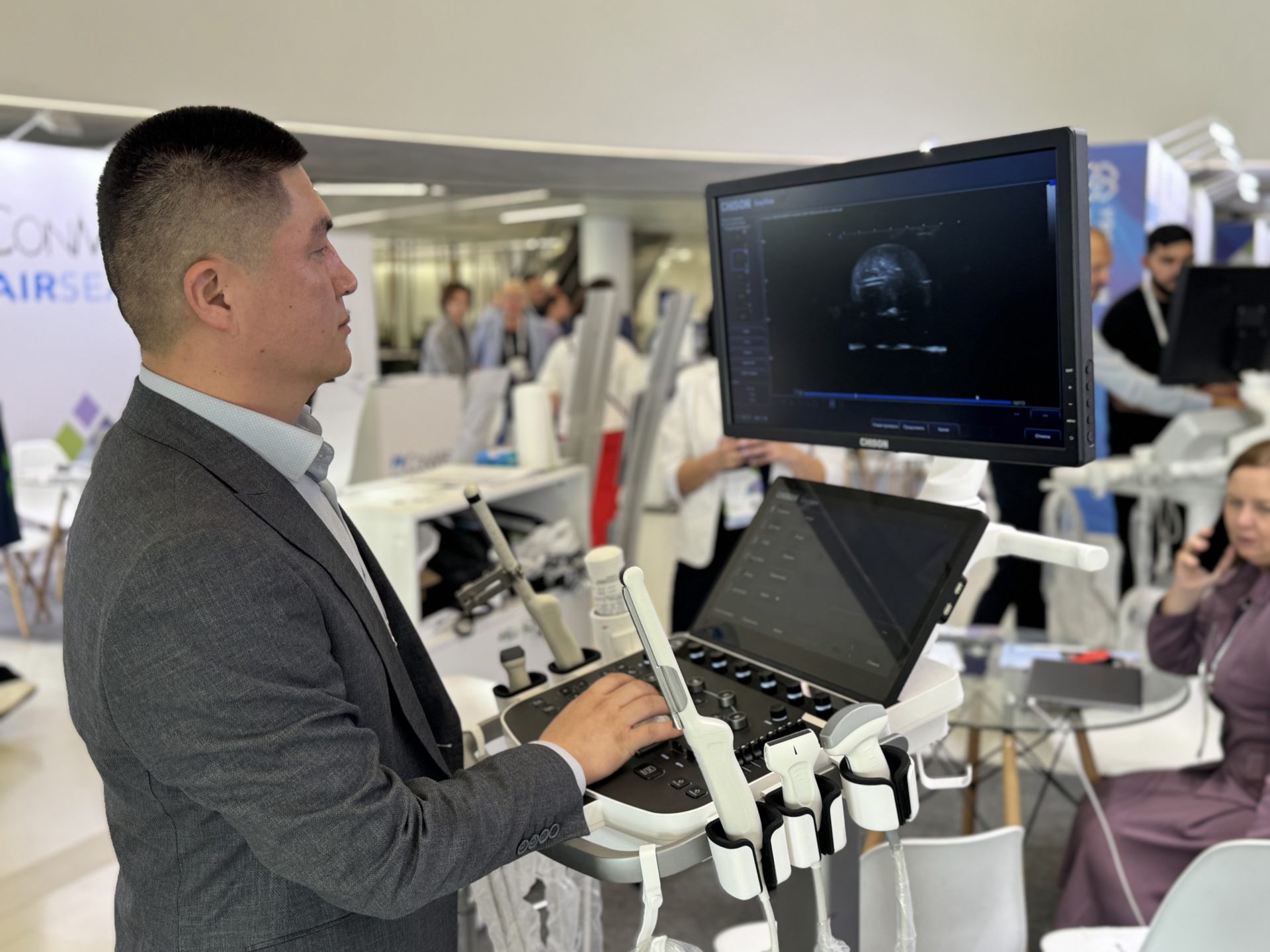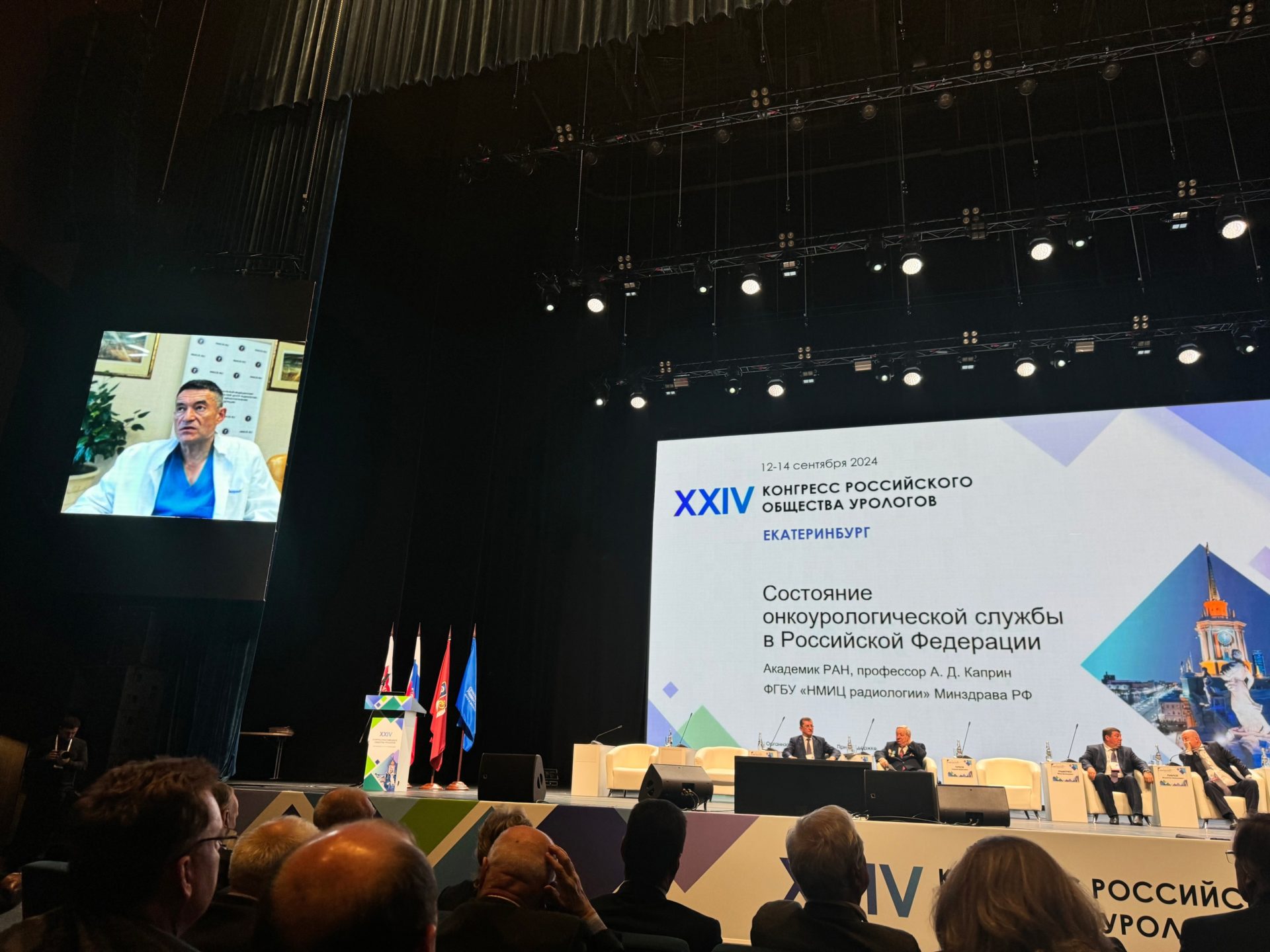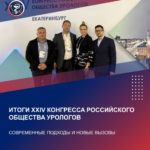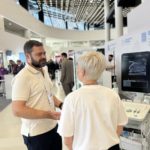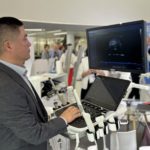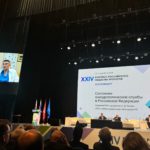RESULTS OF THE XXIV CONGRESS OF THE RUSSIAN SOCIETY OF UROLOGISTS: MODERN APPROACHES AND NEW CHALLENGES
From September 12 to 14, 2024, the XXIV Congress of the Russian Society of Urologists took place at the “Yekaterinburg-EXPO” exhibition center in Yekaterinburg. The event gathered more than 2,000 specialists from Russia and abroad to discuss current issues in the diagnosis, treatment, and prevention of urological diseases. A large team of leading specialists from the National Medical Research Radiological Centre of the Ministry of Health of the Russian Federation participated in the congress, presenting the latest diagnostic and treatment methods for genitourinary system diseases.
The main topics of the congress’s scientific program included digital technologies in urology, import substitution, infections in urology, andrology, and innovations in the treatment of urolithiasis.
In his opening speech, the Minister of Health of the Russian Federation, Mikhail Murashko, noted: “Over the years, the congress has established itself as the premier scientific and educational platform, remaining a reliable source of the latest knowledge and advanced practices. The extensive program addresses the most important issues in the diagnosis and treatment of patients with urological diseases, with lectures delivered by renowned Russian and international experts who possess deep knowledge and vast practical experience.”
The congress was accompanied by a large international exhibition showcasing the latest developments in medical equipment and pharmaceuticals. Doctors had the opportunity to familiarize themselves with the newest robotic systems, endoscopic and laparoscopic equipment, and discuss the potential for their practical application.
One of the central themes of the congress was the issue of antibiotic resistance—a global threat faced by all doctors working with urinary system infections. Nikolai Polyakov, head of the reconstructive urology group at the N. Lopatkin Scientific Research Institute of Urology and Interventional Radiology – branch of the Federal State Budgetary Institution of the “National Medical Research Radiological Centre” of the Ministry of Health of the Russian Federation, emphasized that this area requires constant improvement. He highlighted the importance of the report by his colleague, Professor Tamara Perepanova, head of the infectious and inflammatory diseases and clinical pharmacology group at the Institute of Urology: “Urology is always closely linked with the fight against urinary system infections. The main issue is the widespread use of antibiotics, which contributes to the rise of antibiotic resistance. Therefore, finding new approaches remains highly relevant.”
The congress also addressed reconstructive urology in both adults and children, with presentations on surgeries of the upper and lower urinary tracts, including cases of complications after gynecological surgeries.
Onco-urology also held a prominent place at the congress. Russia’s chief oncologist, academician of the Russian Academy of Sciences Andrey Kaprin, delivered a report on the state of the onco-urological service in the country, focusing on the rising incidence of prostate and kidney cancer: “Prostate cancer remains the most common among the male population. There is also an increase in cases of kidney and bladder cancer. It is important for doctors to pay more attention to early diagnosis and prevention of these diseases.”
Special attention was given to andrology and the treatment of conditions such as varicocele and infertility. Stepan Krasnyak, a leading researcher in the Department of Andrology and Human Reproduction at the N. Lopatkin Scientific Research Institute of Urology and Interventional Radiology, stressed the importance of sharing experiences among doctors: “There are many doctors from the regions, and it is important that basic topics like circumcision and varicocele surgery are discussed here. Doctors from all over Russia can approach professors and ask their questions, creating equal opportunities for professional growth.”


